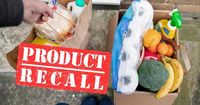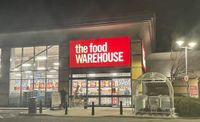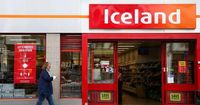Iceland has issued an urgent recall notice on its vegetable lasagne, deeming it unsafe to eat due to possible contamination with hard pieces of plastic. The frozen food retailer, through the Food Standards Agency (FSA), reported that the grab-and-go meal is being pulled from stores as a precautionary measure. This recall affects 400g packs that are labeled with best-before dates of July 23, 2026, and July 30, 2026.
The situation unfolded on March 20, 2025, when Iceland alerted customers about the potential dangers posed by its vegetable lasagne product. The notice cautioned consumers not to eat the product and encouraged those who purchased it to return it to any Iceland store for a full refund, even without a receipt. The recall process not only establishes a safety net for consumers but also highlights the importance of corporate responsibility in addressing food safety issues.
Iceland's statement regarding the recall explained, “We are taking the precautionary measure of recalling the date codes of the above product because it may contain hard pieces of plastic, making it unsafe to eat.” The company further emphasized that only the products with the two specific best-before dates were affected, ensuring clarity and focus on the specific items in question.
Customers have been advised to contact Iceland’s customer service for any inquiries related to the recall at 0800 328 0800. This number provides an accessible channel for consumers to gather more information about the recalled product and what steps to take if they have purchased it.
This recall is not occurring in isolation. The Food Standards Agency is tasked with monitoring food safety and issuing alerts when necessary. In the past few months, the agency has reported several similar recalls across retailers, reflecting growing concerns about food quality and safety standards in the industry.
As it stands, the FSA has urged all customers who have bought the impacted vegetable lasagne to refrain from consumption, reaffirming, “If you have bought the above product do not eat it. Instead, return it to the store from where it was bought for a full refund.” These safety precautions are vital, given that contaminated food can lead to serious health risks.
Moreover, this precautionary recall draws attention to the manufacturing processes within food production. While Iceland has not disclosed specific details on how the plastic may have entered the product, it raises awareness about the critical nature of stringent safety checks in manufacturing lines to prevent such incidents.
The recall notice has been widely circulated via various channels, including point-of-sale displays in Iceland stores to ensure that customers are kept informed. This proactive approach demonstrates Iceland’s commitment to consumer safety, encouraging shoppers to act quickly and responsibly.
Furthermore, shoppers are advised that they will not require a receipt to return the affected product. This gesture underscores the supermarket's dedication to putting customer concerns first and making the refund process as straightforward as possible amid the safety warning.
Food recalls, such as this one from Iceland, serve as reminders of the necessity for consumer vigilance when it comes to food safety. They also exhibit the effectiveness of food regulatory bodies and supermarket chains working in concert to protect public health. Recalls are typically initiated to address serious issues that may pose a risk to consumers, making it imperative for shoppers to pay attention to such alerts.
In summary, this ongoing situation showcases the importance of responsiveness in food safety matters. As consumers navigate grocery aisles, understanding the nuances of such recalls can enhance both their safety and overall consumer experience.






